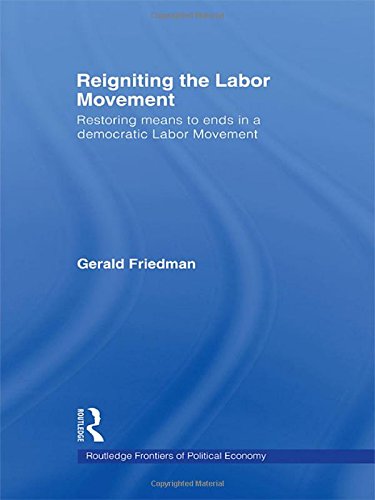

Most ebook files are in PDF format, so you can easily read them using various software such as Foxit Reader or directly on the Google Chrome browser.
Some ebook files are released by publishers in other formats such as .awz, .mobi, .epub, .fb2, etc. You may need to install specific software to read these formats on mobile/PC, such as Calibre.
Please read the tutorial at this link: https://ebookbell.com/faq
We offer FREE conversion to the popular formats you request; however, this may take some time. Therefore, right after payment, please email us, and we will try to provide the service as quickly as possible.
For some exceptional file formats or broken links (if any), please refrain from opening any disputes. Instead, email us first, and we will try to assist within a maximum of 6 hours.
EbookBell Team

4.4
42 reviewsA century of union growth ended in the 1980s. Since then, declining union membership has undermined the Labor Movement’s achievements throughout the advanced capitalist world. As unions have lost membership, declining economic clout and political leverage has left them as weak props upholding wages and programs for social justice. Since the earliest days of the labor movement, activists have debated the appropriate strategy, the mix of revolutionary and reformist goals and the proper relationship between labor unions and broader social and political movements. So long as the labor movement was growing, moving from gain to gain, debates over strategy could remain abstract, safely confined to academic quarters. Decline and impending failure, however, have now made these urgent debates.
Written in a readable style, this book uses information from sixteen countries including the UK, US, Germany and France to chart the fortunes of the labor movement over recent years. The author, based at one of the top centres for heterodox economics, examines the current debates over strategy and suggests ways of reigniting its fortunes.